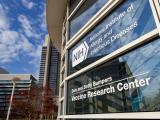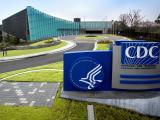Feb 17, 2010 (CIDRAP News) – As pandemic flu activity across the nation wanes, federal health officials are already reviewing the government's response and lessons learned to help blunt the impact of the next national public health emergency, Kathleen Sebelius, secretary of the US Department of Health and Human Services (HHS) said yesterday.
She said that HHS will look for new ways to accomplish public health goals with outside partners such as public schools, universities, or businesses. She pointed to a survey revealing that almost one third of parents said their children got vaccinated at schools, which don't typically operate within the public health community.
Sebelius made the remarks in a keynote speech at a public health preparedness conference hosted in Atlanta by the National Association of County and City Health Officials (NACCHO). HHS posted the speech today on its Web site.
Key partnerships with state and local health departments also helped federal officials expand the scope of the pandemic immunization campaign, she said. "Thanks to your hard work, we were able to sign up three times as many healthcare providers to vaccinate people against the H1N1 flu as we had in our routine childhood vaccine network," she said. "That gave us the most robust distribution system ever put in place to deliver vaccines to target populations."
Another example of the way partnerships paid off was a vaccine locator tool on the HHS flu Web site that used information that local officials collected about neighborhood clinics, she said. "When we spoke with one voice, our message was clearer. When we responded together, our efforts were more effective."
Perhaps the toughest lesson for federal officials has been the limits of current vaccine technology, she said. For the next threat, the government would like to develop, produce, and deliver a vaccine within weeks, not months, Sebelius added.
"We worked to squeeze every last bit of efficiency and dependability out of a safe, but outdated technology," she said. "It was like an old car we had tuned up but still couldn't accelerate the way we needed it to." So far 155 million doses of pandemic vaccine have been released, and 70 million Americans have been vaccinated, Sebelius said.
The country needs to develop safe and effective countermeasures that can be produced faster and more reliably, Sebelius said. The vaccine problems during the pandemic, she noted, are one reason she asked Dr Nicole Lurie, HHS assistant secretary for preparedness and response, to lead a review of the US program to develop medical countermeasures against biological and other attacks. On Feb 10 Lurie asked the National Biodefense Safety Board, a committee that advises the US Department of Health and Human Services on biodefense issues, to take the lead role in the review, which is due to be completed by the end of March.
Liaisons with NACCHO and the Association of State and Territorial Health Officials (ASTHO) have been helpful in gauging the pandemic's impact on health departments and have allowed federal officials to learn of innovative approaches in local communities that can be used throughout the country, Sebelius said. She added that the US Centers for Disease Control and Prevention (CDC) has embedded NACCHO and ASTHO representatives in its emergency operations center during the pandemic.
Partnerships within government were also vital, she said. For example, HHS worked with the Department of Education to craft a school closing plan that balanced health concerns with the need to preserve valuable time in the classroom.
Sebelius credited past pandemic and all-hazards planning with putting the nation in a good position to respond, particularly with countermeasures and hospital surge capacity. "This combination of preparation and partnership has allowed us to have a successful response to the H1N1 flu so far," she said.
See also:
Text of Sebelius speech
https://votesmart.org/public-statement/485860/public-health-preparedness-summit#.WUL2ONzavIU
NACCHO public health preparedness summit program
Feb 10 CIDRAP News story "HHS advisors face short deadline for analyzing biodefense"




















